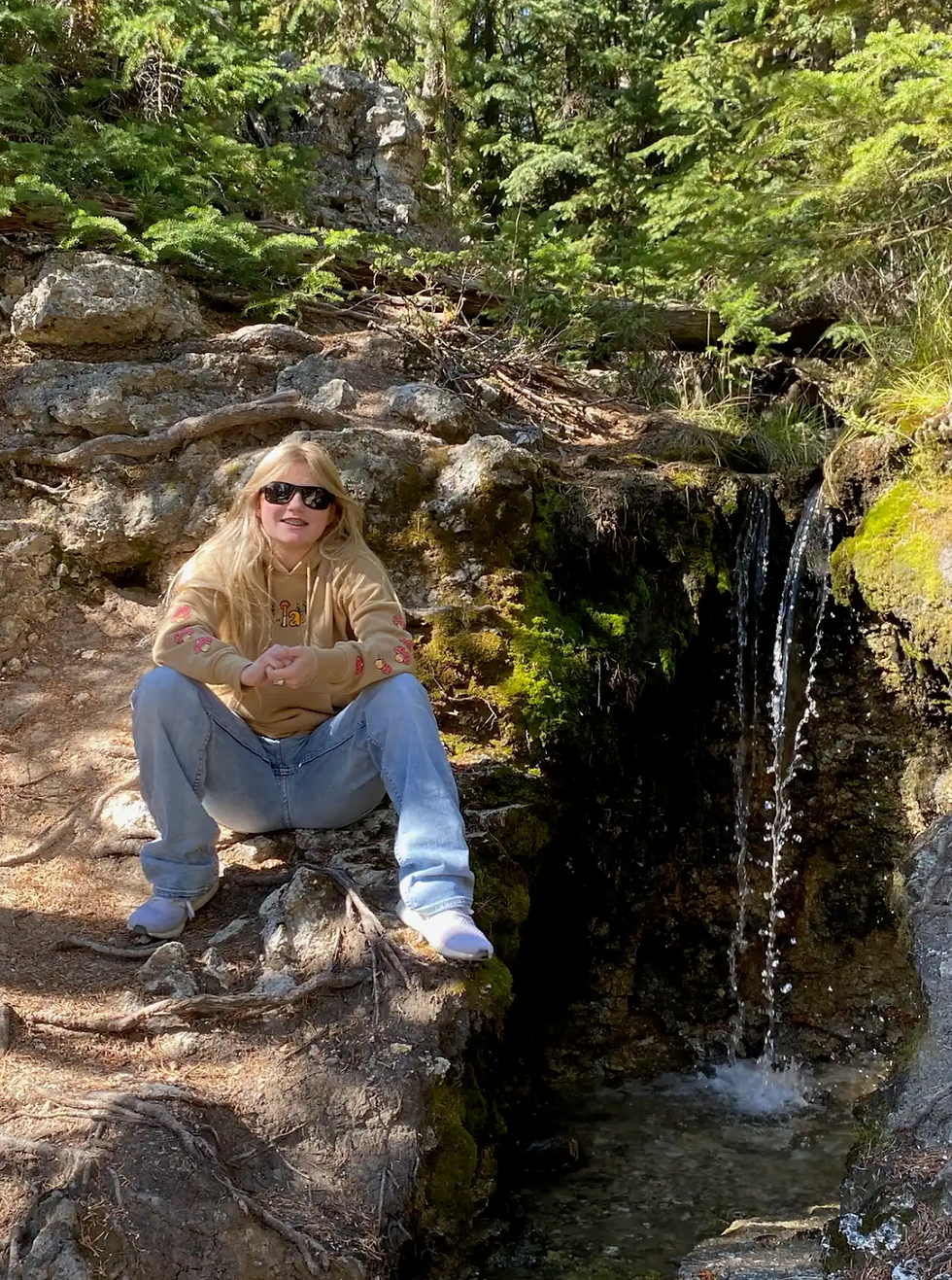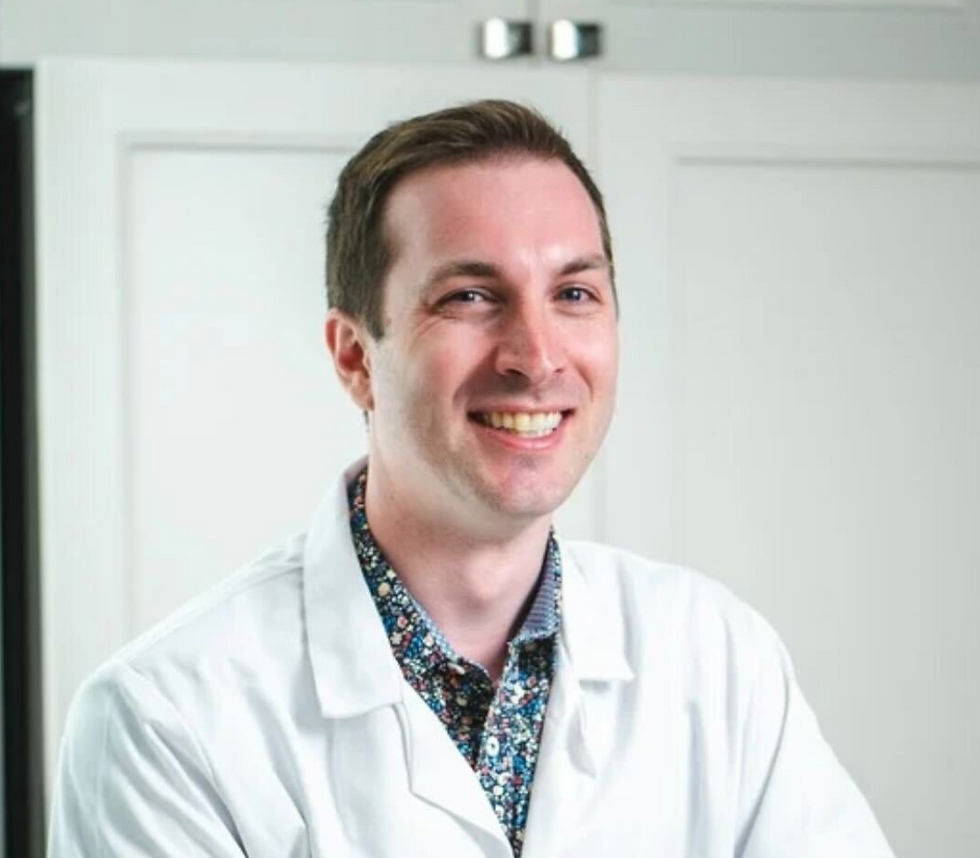Power of Rebuilding - Interview with Kristin Moran
- Jasper Delichte
- Sep 25, 2022
- 7 min read
Updated: Feb 14, 2024

Aleena: How are you doing?
Kristin: I’m doing fine. Nothing, you know, same old same old. Saturday, and I’m in Portland, Oregon.
Aleena: So I’ll start by asking, can you please describe the nature of your injury? How did it occur?
Kristin: It occurred during an ice storm in January 2016. I slipped on black ice at the top of my driveway and flipped in the air, and landed full force on the back of my head before skidding down my steep driveway. I felt immediate pain - I knew something was wrong with my head, but it was in the evening, so I called my doctor, who said you’re not vomiting, and you’re not losing consciousness, so you’re probably fine. It wasn’t until the next morning that I started experiencing some significant concussion symptoms like disorientation, confusion, noise and light sensitivity, nausea, and brain fog. But I wasn’t thinking rationally at that point, which is a common occurrence of brain injury, so I drove my daughter to her pediatrician's drive-in appointment. By the time I got there, I couldn’t walk well, and I was having trouble talking and couldn’t stop crying. I didn’t understand what was going on. Her doctor then called my husband, who came and took me to the ER. I saw a physician’s assistant for a few minutes, who said I probably had a concussion, and just sent me home with a handout. I didn’t get any imaging or guidance at that point. Now, it’s six years later, and I’m still dizzy from the fallout of that accident.
Aleena: Thank you so much for sharing. What was the biggest difference between before your injury and after it?
Kristin: Before my injury, I had just turned 40 and led an active lifestyle with a young daughter, a strenuous job that I loved. I was an avid reader and traveler. And post-injury, my life has a lot more limitations. You know, I am a lot better than those first three years post-injury, but I had to strategize and pace myself to manage my chronic migraine and neuro fatigue and the sensory overload that I struggle with.
Aleena: That must be hard.
Kristin: Yeah, it gets old.
Aleena: In your time of recovery with all these limitations, was there any way your family played a role in helping you, or were there other people in your life that helped you get through this?
Kristin: Yeah, particularly during those first 18 months to two years, I wasn’t functioning that great, but I feel lucky that I had my husband and my daughter who were my anchors. My brain injury impacted all of us differently and changed the dynamic of our relationships with one another. As for my daughter, it was really difficult to adjust to a new kind of mothering where I couldn’t go to her soccer games and back-to-school nights and I can do a lot more now. I feel like I am more of a presence in her life. She helps me with my eye exercises and brings me ice packs and it’s just been ongoing support. I want to get better because I need to be more of a mom to her. And so in many ways, it was tough being a mom, but it also really saved me in a lot of ways. In terms of my husband, you know kinda kept us afloat for the first couple of years. You know like I said, I wasn’t functioning great and had a lot of emotional dysregulation, which is also pretty common after brain injury, so a lot of intense mood swings and you know I think again like after two years when we celebrated my brain injury for the second time. I think once we started to accept our situation, I finally let go of my job. I had a hard time letting go of my job because it’s so much part of my identity. I let go of that. My husband and my daughter became accepting and it opened up more space for us to heal. I don’t think I would be where I am without them. I was really lucky I had a close set of friends who took my daughter in as one of their own, grocery shopped, and drove me to appointments. They still are helping me out, even 6 years later, so I feel fortunate. I guess, you know, the last group of people that played a role is - I’ve been fortunate in meeting a couple of women who are also dealing with persistent symptoms from post-concussion syndrome. They both live in Portland where I live and I didn’t realize I needed that support until a year and a half-two years in. Once I found these women, I can’t imagine getting through things without their support and being able to talk through the challenges and limitations with them.
Aleena: Wow, that was so inspirational - everything you said. Do you still connect with those women?
Kristin: Yup.
Aleena: How often?
Kristin: It depends. I would say I speak to them more regularly than I see them because it’s hard for us to connect and then the pandemic made everything a little harder. But, I mean, regularly at least, you know, once a month. A lot of it is we see an article, and we’ll text each other or it’ll be I’m feeling so much fatigue today and they’ll be like I get it. So it’s pretty regular and I hope they stay a part of my life forever.
Aleena: That’s so nice to have a group of people that you can connect with who had similar experiences and it’s just a great feeling.
Kristin: Yeah, it took me a while. I think - for the first year and a half, I was like, “this isn’t my life. This isn’t who I am. I don’t need other brain-injured people in my life.” And then, once I realized that I did need those connections. I’m not really on social media and had a hard time just even being on the computer, so looking for that support online was hard. So yeah, I would recommend that. I mean, it was my dentist who linked me with one of the women. So, I just kind of found them in random ways.
Aleena: That’s so interesting to hear and I just wanted to say that hearing your story it’s amazing after how all you’ve been through, though it was very hard to accept change, in the beginning, you adapted to it. You’re so resilient, it’s so nice.
Kristin: Oh, thanks.
Aleena: I was just saying because as a teenager, adapting to the Covid pandemic situation itself was so hard for me, so I can only imagine how hard it could have been after a brain injury. And the last question, where do you see yourself ten years from now?
Kristin: I mean I think I don't predict the future too much in the sense that you know, I found as part of my recovery that I do a lot better when I just stay in the present. And I kind of take each day as it comes because they’re all so different. And I have found that I prefer this way of living. You know it doesn’t mean that I don’t plan events for my daughter or think about the future, but I don’t have the same heavy expectations for the future that I may have had in the past. But it still feels very open and expansive and hopeful. I’ve just been taking it as it comes. I’ve just been taking in a lot of old hobbies that I sorta forgot about. I’m focused on being a mom right now. So, yeah, I’m not sure.
Aleena: That’s a great answer. Would you say that limiting your expectations and just focusing on the present more has benefitted you in a lot of ways?
Kristin: Yeah. I don’t know if I'm limiting my expectations so much, but I am just not thinking about them in the same way as when I was pretty career-driven in my thirties. You know, I wanted to get to this point and that point. When I think about the past, sometimes I kinda get sad, or when I think about the future and I think about if I’m still living with all these limitations, how hard that will be. I almost think of it as a horse with blinders and kind of zooming in on what’s in front of me, and that seems to just make me feel the most content if that makes any sense.
Aleena: Yeah, focusing on the present is always good.
Kristin: Yeah. How did you get interested in doing this?
Aleena: I’m currently in 11th grade in high school, and my school has different academies. I’m in the medical academy. I’m just really interested in neuroscience and neurology, and it’s something that I’ve always been interested in. My dream is to become a neurologist one day, and I saw this organization and I saw that I’ve never had the experience of talking to people who’ve had brain injury experiences. Connecting with people is such an important part of being any kind of doctor and understanding people’s experiences, and the emotional part of it, and not just the medical, and that’s something I wanted to do.
Kristin: That’s cool! Yeah, I mean there’s not a lot taught about concussion and post-concussion syndrome. You know, the neurologist I’ve been to have been able to prescribe medication and for my migraines, but particularly at the beginning, I got a lot of - you just kind have to wait and see wait and see - and so one of the things I think a lot of people struggle with is navigating where to find the right doctors. I had never heard of a physiatrist or osteopath or any of these people who were functional neurologists. This group of people helped with my rehab and kind of opened me up to new types of things I could do to get better.
Aleena: Yeah, and just adding on to that, I know in schools whenever we learn about neuroscience and neurology it’s always an emphasis on the knowledge part of it, like the structure of the brain, but I rarely see the emotional part of it like the actual patient, like the actual person.
Kristin: Yeah, that’s a piece of really good information for doctors to have - to get the patient’s perspective. So I appreciate that you’re making that part of your education as well.
Aleena: Yes, and it was so great interviewing you. Thank you so much.
Kristin: No problem!
Aleena: Is there anything else you would like to add?
Kristin: I mean I guess the only thing is it can be hard at the beginning, which for me was a year and a half. But you know I have learned a lot and I have been able to rebuild a life for myself and I do think it’s just rich. I don’t think of it as better or worse, just different. And it is such a jarring experience to have a type of injury on your brain. It just kinda impacts your existence - who you are. I would just say to people who are going through this experience to keep looking for treatments and rehab and that it will get better.
Aleena: Thank you so much. That was a great message, thank you.



